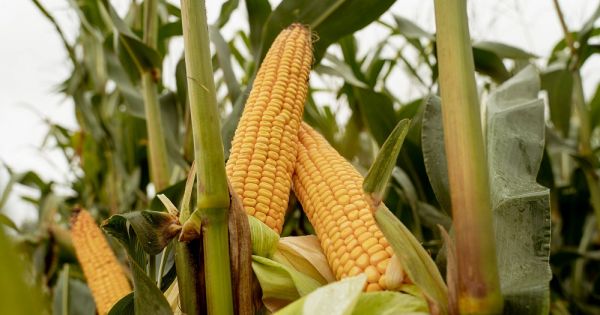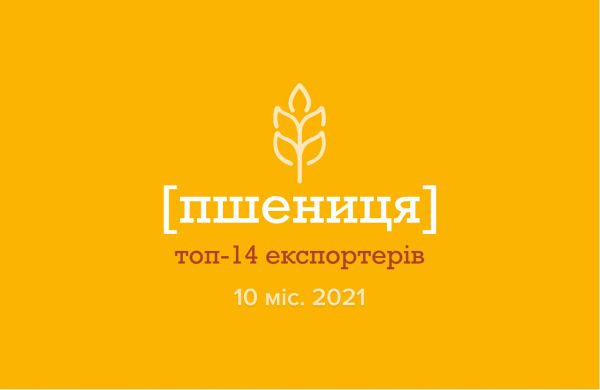Why Can’t Grain Traders Recover Damages From Ukrainian Farmers?
2021 agricultural season is coming to an end and export and world prices for grain and other crops traditionally continue to rise. Energy instability, increase in fertilizer prices, a prolonged corona crisis and many other factors continue to keep the agricultural sector of Ukraine in a turbulent zone.
The experience of 2020 makes it clear that agricultural exporters and processors will once again experience massive non-performance of supply contracts. Therefore, it is most likely that the courts of Ukraine in winter will have a lot of cases on penalties and damages recovery from Ukrainian farmers.
That is why let’s consider the most popular causes of fiasco suffered by grain corporations in courts of Ukraine last year.
-
Sorry, there is a force majeure!
It is natural that the provisions of the law on the act of God are most often applied by courts of Ukraine when considering disputes of the agro-industrial sector of the economy. Whatever huge penalties the contracts provide, the general provisions of civil legislation allow to avoid them by providing timely and detailed documentation of force majeure circumstances.
According to Article 617 of the Civil Code of Ukraine, "a person who has breached an obligation shall be released from liability for such breach . . . , if such breach was a result of force majeure."
But this provision is applied only if a breaching party can prove the occurrence of such circumstances that prevented it from performing the agreement.
To prove the force majeure is always quite a difficult process and it requires thorough work. Here is a brief checklist for agricultural workers, which courts usually consider as the minimum acceptable in disputes related to force majeure circumstances:
- notification by the counterparty of the force majeure occurrence (unfavourable weather conditions, pandemic, military actions, etc.);
- certificates from regional centers of hydrometeorology (abnormally dry and hot weather or precipitation, severe hot dry winds and low humidity, etc.);
- crop inspection reports (detailed reports, not formal);
- certificates of force majeure circumstances (the act of God) issued by the Ukrainian Chamber of Commerce and Industry or its regional divisions on the basis of Articles 14, 141 of the Law of Ukraine "On the Chambers of Commerce and Industry".
The last document is the most important and necessary. Courts dismissed claims against agricultural manufacturers on bringing to responsibility for non-performance of contracts last year due to the availability of this document and other documents from the list.
-
Quarantine — a universal airbag for a breaching party
For the third year the world has been living with COVID-19, and unprecedented global restrictive measures have taught business to foresee quarantine drawbacks. Ukrainian legislation is no exception, as it has defined quarantine restrictions as possible force majeure.
It all seems logical: if you can't work, then document the restrictions and get a certificate of chambers of commerce and industry. And the new Bankruptcy Code and the practice of courts, which finally made it impossible for owners and directors to easily withdraw assets and merge one company after another, will take care of the unscrupulous. However, as in the case of both unfavourable weather conditions and the introduction of a lockdown, each business entity shall provide reasonable evidence that it was unable to perform its obligations, without its fault.
But no! A provision that actually imposed a moratorium on the use of bankruptcy proceedings was added to final and transitional provisions. Since it was decided to establish that "temporarily, for the period of a quarantine imposed by the Cabinet of Ministers of Ukraine to prevent the spread of coronavirus (COVID-19), and within 90 days from the date of cancelling quarantine, it is not allowed to open bankruptcy proceedings against debtors-legal entities upon petition of creditors having claims against a debtor which arose from March 12, 2020."
And there is no need to find out and prove whether quarantine really prevented the debtor from performing his obligations, whether the restrictions apply to his sector of the economy, whether the debtor could take into account the new realities in 2021. What for?
I really hope that this provision will receive a warning as to its application, as it is still difficult to imagine when the quarantine comes to an end.
-
Reduction of penalty by a court
The law allows the court to reduce the amount of damages and penalties, which are to be recovered by the claim of the creditor. However, it is necessary to take into account the following circumstances:
- degree of performance by the debtor of his obligations;
- the financial status of the parties to the obligation;
- other interests of the parties that deserve attention;
- measures taken by the breaching party to reduce possible damages to the creditor;
- the behaviour of the creditor himself.
Depending on the behaviour of the parties and the state of the case, courts sometimes significantly reduce the amount of penalties and damages. If relevant evidence is provided to the court, the claimed amounts may be reduced by 30%, 50% and even 99%. According to legislation, there are no specific limits.
-
Unproved damages
Ukrainian legislation is not unique in its approach to recover damages caused by non-performance of obligations. When applying to the court, the creditor shall prove the improper behaviour of the supplier of goods, the existence of incurred damages and their specific amount, as well as the causal link between the unlawful behavior and damages.
When calculating damages (both specific and abstract), it is typical for exporters or processors of raw materials to enter into agreements of replacing undelivered goods. But such costs under replacement agreements are not unconditional.
There must be a direct causal link between the breach of the obligation in the form of delay in delivery of goods and damage to the creditor. The supplier of goods is not responsible for any additional costs of the buyer, but only for those directly caused by the supplier’s inaction. That is, costs incurred by the creditor at his own will or under the influence of other extraneous circumstances are not causally linked with the debtor's breach.
A bona fide creditor shall, in the event of failure by a counterparty to perform obligations, act prudently and carefully, take measures to reduce its possible damages and prevent their increase. In the practice of international commercial arbitration (including specialized, GAFTA, FOSFA, etc.), these responsibilities are based on the principle of mitigation ('mitigation' means reducing the impact).
Courts of Ukraine are expected to follow the principle of mitigation and ignoring by grain corporations and traders of this principle often leads to refusal to reimburse the suffered damages. In practice, unfortunately, one has to come across the same replacement agreements which exporters use in order to justify the alleged damage caused by different suppliers, which signifies their artificiality.
Therefore, in order to verify the claimed damages for adequacy, in case of replacement agreements provided by the plaintiff, I always advise to exclude:
- conclusion of the same replacement agreements for non-compliance with terms of delivery by different manufacturers;
- conclusion of replacement agreements at the projected top of price;
- proportional increase in the final product value;
- the reality of the creditor taking all of the measures to mitigate the negative consequences.
Ukrainian legislation is no exception and it offers effective solutions to avoid or reduce liability for contractual breach that occurred through no fault of domestic farmers. Last year's quarantine realities, the rapid rise in prices of agricultural products and sometimes unfavourable weather conditions made both the exporters and the producers draw conclusions. It is natural that the end of the agricultural season leads to another season, in particular, judicial.
Eugene Litvinov, Attorney-at-Law, Head of Dispute Resolution Department of KPD Consulting Law Firm






